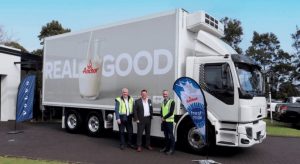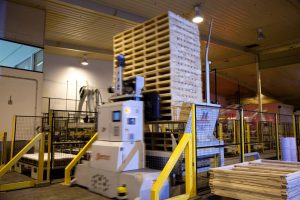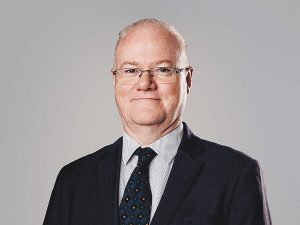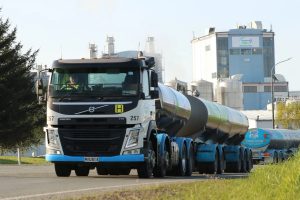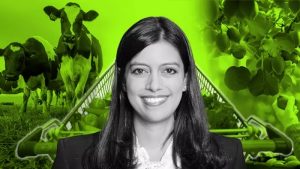
The MinION device is made by Oxford Nanopore Technologies and utilises Whole Genome Sequencing (WGS), the same technology used to test for Covid-19, says Fonterra principal scientist Shalome Bassett.
“It does this by measuring changes in the electrical current as the DNA passes through a special pore, or opening in the device,” Bassett told Dairy News.
The device is able to generate long pieces of DNA sequence, or ‘long read’ sequencing.
“We use our MinION data in combination with ‘short read’ sequencing data which is generated from a different type of sequencing machine (Illumina).
“This ensures that we don’t have any gaps (or missing information) in our genomes and gives us a better understanding of what our dairy cultures can, or potentially can, do.”
Bassett says Fonterra has utilised WGS for over 20 years since the co-op sequences the first of its two current commercialised probiotic strains.
“Back then whole genome sequencing came with a price tag of over a million dollars and took over a year to do,” she says
However, with advancements in sequencing technologies over that time, Bassett says, Fonterra can now perform WGS for hundreds of dollars and have the DNA results available in a matter of hours with a full genome assembled in days.
She says the co-op started developing in-house WGS capabilities with the short-read (Illumina) sequencing.
“And now with the addition of MinION, we’ve been able to extend our suite of sequencing technologies to include long read sequencing as well.”
She says the technology will be used across the co-op, for food safety and quality as well as probiotic discovery.
“Whole genome sequencing has now become a core capability that will help us to drive our strategy to lead in innovation and science.”
Bassett says that innovations like the MinION device are critical to Fonterra’s ability to realise its sustainability goals.
“For example, the use of MinION has played an important role in our Kowbucha programme which is looking to use probiotics as a natural way to reduce the methane produced by cows and lower New Zealand’s carbon emissions,” says Bassett.
“It’s also helping us to further unlock the secrets of our dairy culture collection, which is one of the largest in the world, so that we can bring new probiotic strains to market… much faster than ever before,” says Bassett.





